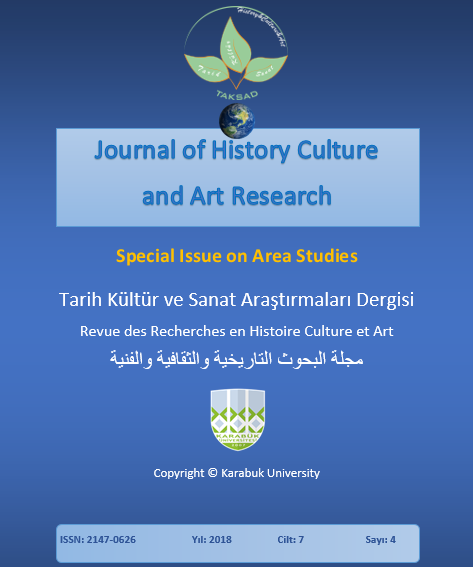Metaphorical Interpretation of Genesis in M. M. Prishvin’s Works
DOI:
https://doi.org/10.7596/taksad.v7i4.1868Keywords:
Metaphor, Literary text, M.M. Prishvin, Genesis.Abstract
This article explores the originality of M.M. Prishvin’s metaphor in his own works. The main directions of metaphorization, forming the figurative and semantic basis of the artistic method and the philosophy of the writer, are considered. The role of metaphor in creation of the author’s image of the world, representing the dialectical tropocentric system of relations between form and content, refracted in various aspects of the existence of the text is defined. It is shown that a metaphorical understanding of being forms the author’s image of the world, on the one hand, and realistic and even naturalistic, on the other hand, having a powerful mythological overtones and deep philosophical content. The main method by which the outstanding Russian writer of the first half of the XX century solves epistemological, ethical, aesthetic, and ideological tasks in the prose texts of various genres, is a metaphor. Analysis of the prose of M.M. Prishvin allows us to assert that in the work of the writer metaphor forms the semantic core of the author's rhetoric and characteristics, composition and system of images. In the works of M.M. Prishvin, both large and small forms of metaphor, form a unified system that interacts with all elements of the text and represents the figurative and semantic framework of the author's thoughts. The individual-author's metaphor becomes for the writer a universal tool of knowledge, thanks to which an aesthetic synthesis of various spheres of being is carried out: natively-natural, social-human, spiritual-metaphysical.
References
Arutyunova, N. D. (1990). Metaphor and discourse. The theory of metaphor. Moscow: Progress.
Arutyunova, N. D. (1999). Language and human world. Moscow: The Languages of Russian culture.
Borisova, N. V. (2001). The life of myth in the works by M.M. Prishvin. Yelets: ESU named after I.A. Bunin.
Chumakov, A. N. & Turanina, N. A. (2008). Metaphorical image of the world in M.M. Prishvin's works: monograph. Belgorod: LitKaravan.
Ivanova, N. N. & Ivanova, O. E. (2004). The dictionary of the language of poetry. ‘’Figurative arsenal of Russian lyrics at the end of the XVIIIth - the beginning of the XXth centuries: More than 4500 figurative words and expressions.
Ivanyuk, B. P. (1998). Metaphor and literary work. ‘’Structural-typological, historical-typological and pragmatic aspects of the study’’. Chernivtsi: Ruta.
Lakoff, J. & Johnson, M. (2004). Metaphors with which we live. Moscow: Editorial URSS.
Prishvin, M. M. (1983-1984). Collected Works in 8 volumes. Moscow: Fiction.
Sklyarevskaya, G. N. (1993). Metaphor in the language system. St. Petersburg: Unta.
Telia, V. N. (1988). Metaphorization and its role in the world linguistic picture creation. In B. A. Serebrennikov (eds.), The role of the human factor in the language: Language and the picture of the world, (pp.183-204). Moscow: Science.
Downloads
Published
How to Cite
Issue
Section
License
All papers licensed under Creative Commons 4.0 CC-BY.- Share — copy and redistribute the material in any medium or format
- Adapt — remix, transform, and build upon the material for any purpose, even commercially.
Under the following terms:
Attribution — You must give appropriate credit, provide a link to the license, and indicate if changes were made. You may do so in any reasonable manner, but not in any way that suggests the licensor endorses you or your use.
- No additional restrictions — You may not apply legal terms or technological measures that legally restrict others from doing anything the license permits.







